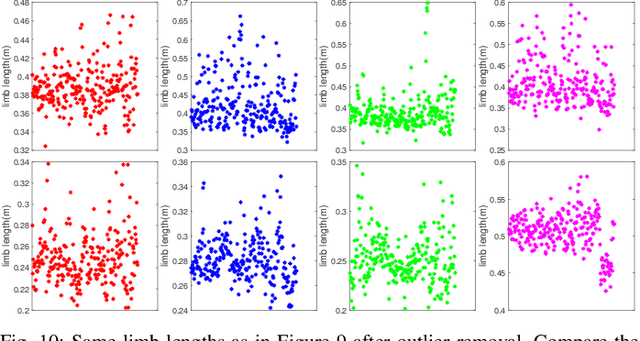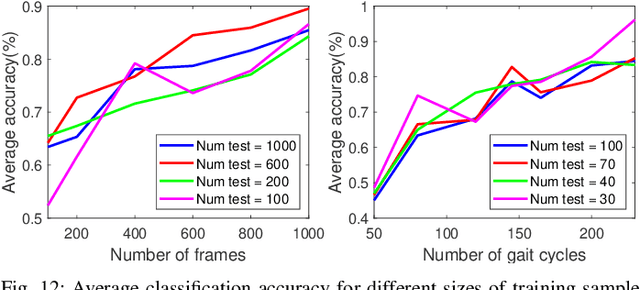B. O. Familoni
GlidarCo: gait recognition by 3D skeleton estimation and biometric feature correction of flash lidar data
May 20, 2019



Abstract:Gait recognition using noninvasively acquired data has been attracting an increasing interest in the last decade. Among various modalities of data sources, it is experimentally found that the data involving skeletal representation are amenable for reliable feature compaction and fast processing. Model-based gait recognition methods that exploit features from a fitted model, like skeleton, are recognized for their view and scale-invariant properties. We propose a model-based gait recognition method, using sequences recorded by a single flash lidar. Existing state-of-the-art model-based approaches that exploit features from high quality skeletal data collected by Kinect and Mocap are limited to controlled laboratory environments. The performance of conventional research efforts is negatively affected by poor data quality. We address the problem of gait recognition under challenging scenarios, such as lower quality and noisy imaging process of lidar, that degrades the performance of state-of-the-art skeleton-based systems. We present GlidarCo to attain high accuracy on gait recognition under the described conditions. A filtering mechanism corrects faulty skeleton joint measurements, and robust statistics are integrated to conventional feature moments to encode the dynamic of the motion. As a comparison, length-based and vector-based features extracted from the noisy skeletons are investigated for outlier removal. Experimental results illustrate the efficacy of the proposed methodology in improving gait recognition given noisy low resolution lidar data.
 Add to Chrome
Add to Chrome Add to Firefox
Add to Firefox Add to Edge
Add to Edge